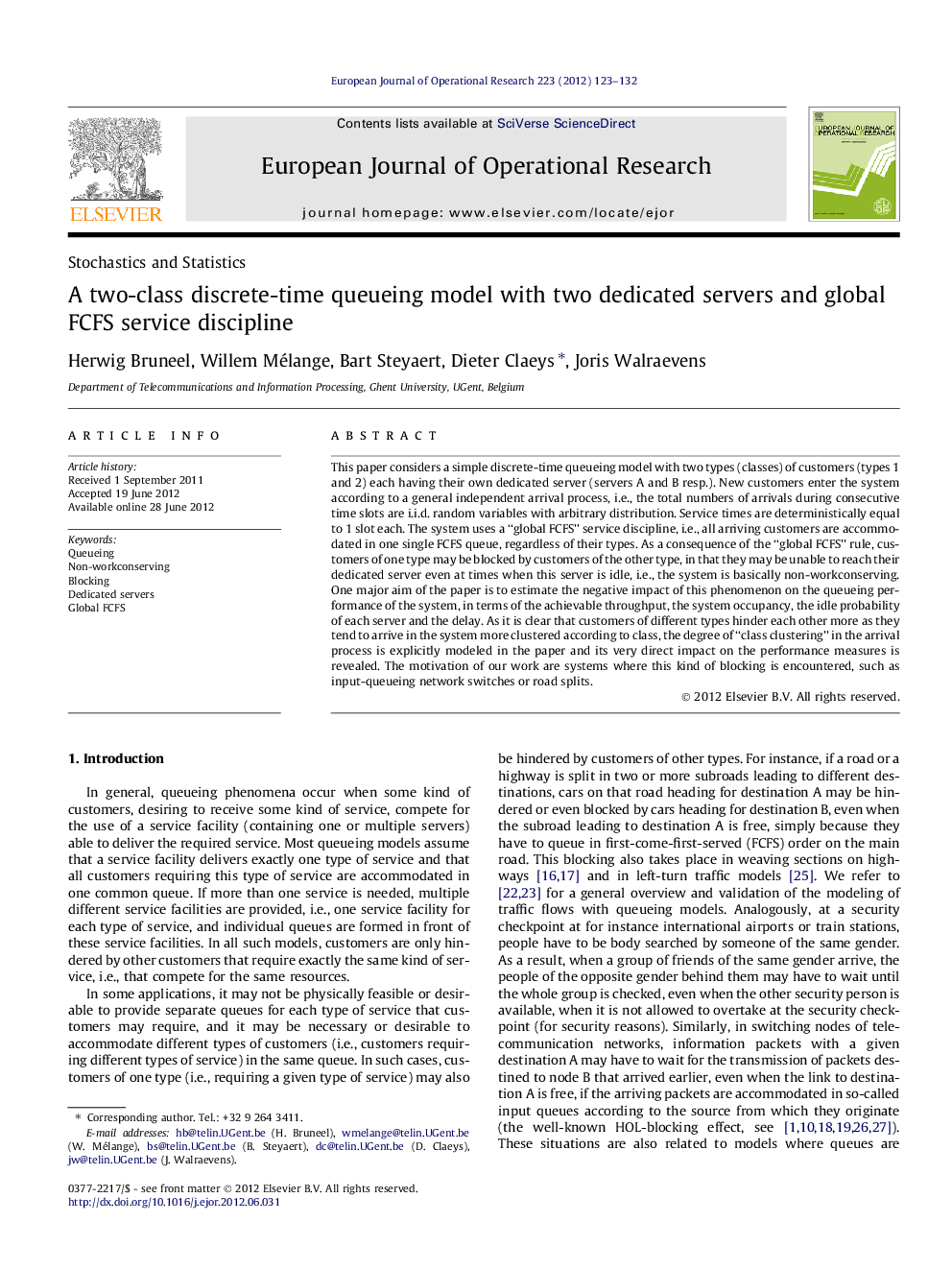| کد مقاله | کد نشریه | سال انتشار | مقاله انگلیسی | نسخه تمام متن |
|---|---|---|---|---|
| 478352 | 1446068 | 2012 | 10 صفحه PDF | دانلود رایگان |

This paper considers a simple discrete-time queueing model with two types (classes) of customers (types 1 and 2) each having their own dedicated server (servers A and B resp.). New customers enter the system according to a general independent arrival process, i.e., the total numbers of arrivals during consecutive time slots are i.i.d. random variables with arbitrary distribution. Service times are deterministically equal to 1 slot each. The system uses a “global FCFS” service discipline, i.e., all arriving customers are accommodated in one single FCFS queue, regardless of their types. As a consequence of the “global FCFS” rule, customers of one type may be blocked by customers of the other type, in that they may be unable to reach their dedicated server even at times when this server is idle, i.e., the system is basically non-workconserving. One major aim of the paper is to estimate the negative impact of this phenomenon on the queueing performance of the system, in terms of the achievable throughput, the system occupancy, the idle probability of each server and the delay. As it is clear that customers of different types hinder each other more as they tend to arrive in the system more clustered according to class, the degree of “class clustering” in the arrival process is explicitly modeled in the paper and its very direct impact on the performance measures is revealed. The motivation of our work are systems where this kind of blocking is encountered, such as input-queueing network switches or road splits.
► We study a queue with two different servers and one common queue.
► We investigate the impact of global FCFS on buffer content and delay.
► We demonstrate that class clustering has a direct influence on the performance.
► Motivation stems from road splits and input-networking queues.
Journal: European Journal of Operational Research - Volume 223, Issue 1, 16 November 2012, Pages 123–132